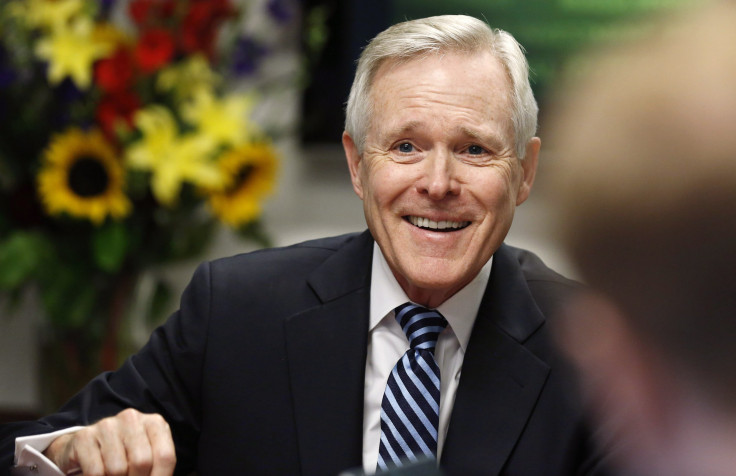US Navy Warns Of 'Provocative Actions' From North Korea, Plans To Increase Pacific Naval Presence

U.S. Secretary of the Navy Ray Mabus said the U.S. will continue to shift strategically toward Asia and look to deter North Korea’s increasingly threatening behavior and capabilities, according to South Korea’s Yonhap news agency. Mabus, who spoke on Tuesday during a four-day visit to South Korea, said the U.S. is most concerned that North Korea “will take some provocative actions that will allow the situation to get out of control.”
North Korea has been pursuing a fully capable naval-based ballistic missile system that would give it short-range strike capabilities around the Korean peninsula. South Korean military sources told the Korea Herald that the military's main concern is that the North could retaliate with a nuclear strike if it is attacked by the South or its allies.
Mabus, who has been Navy chief since 2009 and overseen the military component of President Barack Obama’s shift toward Asia, is in South Korea to meet with the country's top military officials and discuss the North. “There will be more ships in this region to do exercises to hopefully deter any sort of actions and to make sure that we are ready for working with the Republic of Korea [South Korea],” Mabus said, adding, “We will be a fleet of more than 300 ships by the end of this decade, and 60 percent of those will be in the Pacific region [up from 50 percent currently].”
That would mean 180 U.S. Navy ships based in the Pacific, including eight ballistic missile defense destroyers deployed to Japan and three of the U.S. Navy’s newest Zumwalt-class stealth destroyers, according to the Korea Herald.
South Korea and the U.S. held the largest joint exercise since 1996 in November with all branches of their militaries participating, in response to what a South Korea Joint Chiefs of Staff officer called an uptick in North Korea’s “intensive military drills,” according to Press TV.
China, the dominant military and political force in the region, has historically backed the North, but that relationship has been tested in recent years as the North handed down leadership from Kim Jong Il to his son Kim Jong Un. Obama’s efforts to strengthen ties with the second-largest economy in the world has also made some experts wonder if China will shift away from its inflammatory neighbor.
© Copyright IBTimes 2024. All rights reserved.






















